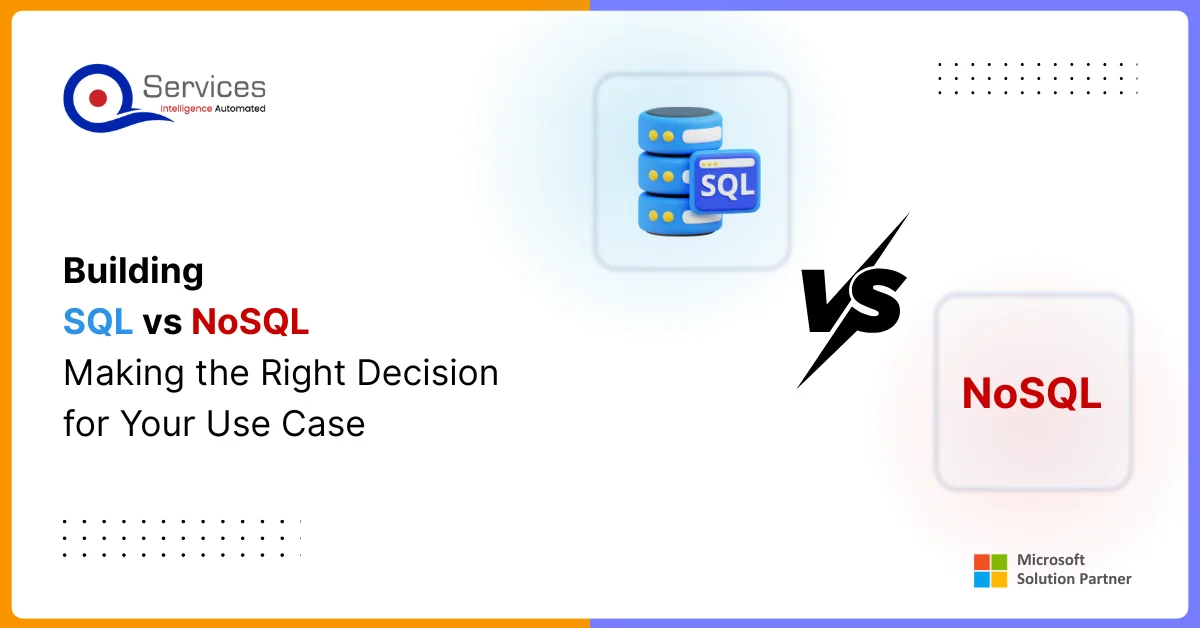
Home » Azure Migration Services: Seamless Transition for Mid-Sized Companies
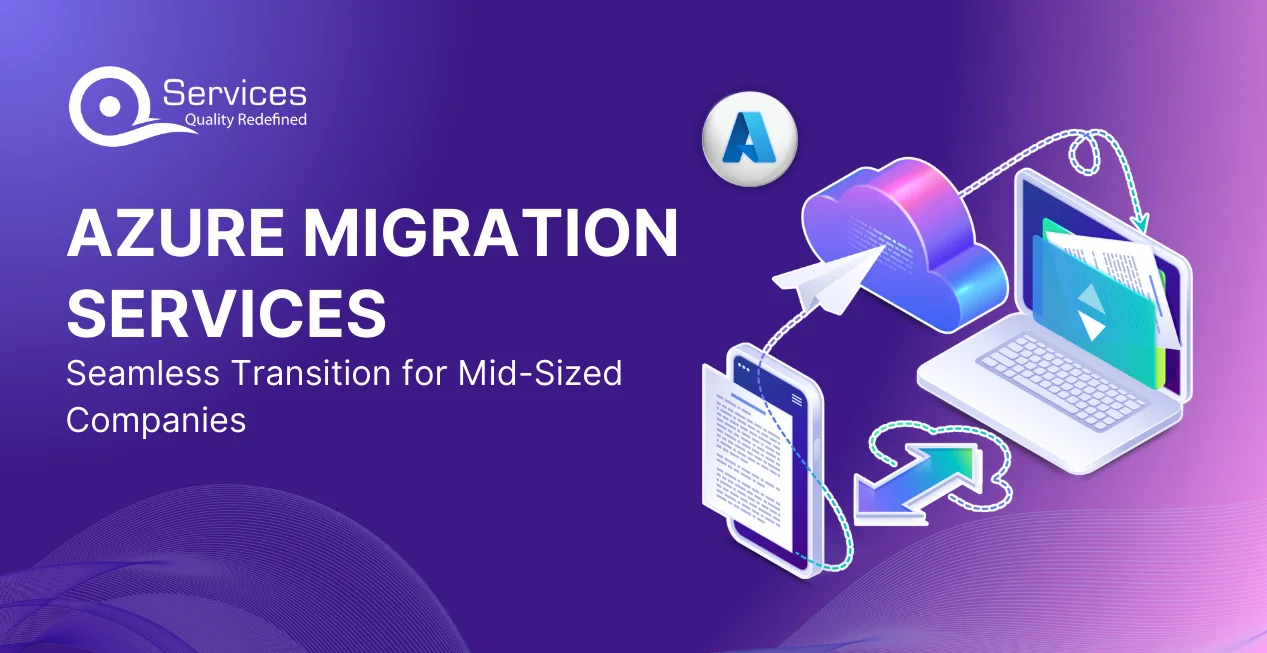
“Success in the cloud is not just about the technology; it’s more about transforming your business.“
These insightful words from Satya Nadella says a lot about the true potential of cloud migration. Have you ever thought about how much your business could save by moving to the cloud? Studies show that businesses migrating to Azure can see a significant 391% ROI over three years.
Azure Migration Services are specifically designed for mid-sized businesses. From enhancing scalability to improving security, the cloud can help streamline operations and reduce costs. Plus, with the right support, the transition can be smooth and hassle-free.
So, why wait? Let’s explore how Azure can elevate your business, making cloud migration an exciting opportunity rather than a daunting challenge!
Microsoft Azure Migration Services are like having a professional moving company for your business’s IT infrastructure, applications, and data. Just consider you’re relocating to a new office, and there you want everything to go smoothly without any disruptions or losses.
Azure Cloud Migration Services ensure that your transition to the Azure cloud is secure and efficient.
These services come with essential Azure migration tools, such as Azure Migrate, which helps you assess what needs to be moved and plan the entire process, much like creating a detailed moving checklist. Azure Data Migration Services acts as the reliable moving truck for your databases, ensuring they are transferred safely. For handling large volumes of data, Azure Data Box steps in, managing the heavy lifting with ease.
Together, these tools provide a comprehensive solution to ensure your migration to Azure is seamless and hassle-free, just like a well-organized office move.
Get free Consultation and let us know your project idea to turn into an amazing digital product.
Whether you’re a startup or a large scale enterprise, Azure can handle all your workload . It offers various services that can scale with your business needs. You can easily scale up or down based on demand, ensuring you only pay for what you use.
Azure’s pay-as-you-go model helps you manage your budget more effectively so you can avoid the hefty upfront costs of traditional IT infrastructure and instead, pay for the resources you need, when you need them. Plus, Azure offers various pricing options and discounts, making it even more cost-effective.
Microsoft invests heavily in security, offering robust protection for your data. Microsoft Azure complies with a wide range of international and industry-specific standards to ensure that your data is safe and compliant with regulations. This includes features like multi-factor authentication, advanced threat detection, and encryption.
It provides access to various modern technologies like machine learning, AI and IoT which allows companies to innovate and strive in this digital world. Along with that Azure also integrates effortlessly with other Microsoft products and other third-party services, making it easier to manage your entire IT ecosystem.
Azure ensures your applications are available and performant globally. This is particularly beneficial if you have a global customer base or need to comply with data residency requirements.
Azure guarantees high availability and performance with its robust infrastructure. Microsoft offers a 99.95% availability SLA for most services, ensuring your applications are always up and running. This reliability is crucial for maintaining business continuity and customer satisfaction.
Azure offers extensive support options, including 24/7 technical support, comprehensive documentation, and a vibrant community. This ensures businesses to have the help they need whenever they want making the migration process efficient.
Azure supports hybrid cloud environments which allows you to seamlessly integrate your on-premises infrastructure with the cloud. This flexibility is ideal for businesses that need to maintain certain workloads on-premises while taking advantage of the cloud’s benefits.
Migration to azure cloud ops is a beneficial move for business, especially for small and mid-sized ones. But along with its benefits it also comes with significant set of challenges. Here we will discuss about these migration challenges and how Azure Cloud Migration Framework can help to address them.
Challenge: Many mid-sized companies rely on legacy systems that are not easily compatible with modern cloud environments. Migrating data from these systems can be complex and time-consuming.
Solution: The Azure Cloud Migration Framework provides tools and best practices for modernizing legacy systems. It includes steps for data classification, migration planning, and the use of Azure services like Azure Data Factory to streamline data migration and transformation.
Challenge: Businesses worry about potential downtime and disruptions during the migration process, which can affect operations and customer satisfaction.
Solution: Azure’s Cloud Adoption Framework emphasizes a phased migration approach. By preparing, assessing, deploying, and releasing workloads in stages, companies can minimize downtime. Azure Site Recovery and Azure Backup also offer robust solutions to ensure business continuity during the transition.
Challenge: Cloud migration can be expensive, and there’s a risk of overspending if not managed properly.
Solution: Azure’s pay-as-you-go model helps manage costs effectively. The Cloud Adoption Framework includes cost management tools and best practices to help companies plan and monitor their cloud spending. Azure Cost Management and Billing provide insights and recommendations to optimize costs.
Challenge: Many mid-sized companies lack the necessary in-house expertise to manage a cloud migration effectively.
Solution: The Azure Migration Architecture offers extensive resources, including detailed documentation, training modules, and support from Azure experts.
Moving to a new platform is a significant step for any business. However, the real challenge often begins post-migration, where the focus shifts to optimizing workflow efficiency. Here are some Azure cloud migration strategies to enhance productivity post migration.
After choosing Azure migration service and moving to it, businesses often face several challenges:
First and foremost, challenge is ensuring the data to remain accurate across systems for operational efficiency maintenance.
Struggling with new tools is also a major concern of employees. To cope up with that businesses should provide effective training programs to boost their confidence and productivity.
Transition periods can cause disruptions, impacting productivity and customer satisfaction. Minimizing downtime is key.
New systems must communicate seamlessly with existing ones. Bad integration can lead to data silos and hinder collaboration.
Utilizing automation tools can significantly help businesses address common challenges and improve efficiency. By automating repetitive tasks, employees can focus on more strategic activities, enhancing overall productivity. Automation ensures consistency by reducing human error, especially during critical processes. Additionally, automated processes are scalable, easily adapting to business growth without requiring extensive rework.
Ideal for routine tasks like data entry, invoice processing, and customer service responses.
Tools like Microsoft Power Automate streamline processes by connecting different applications and automating workflows.
Implementing AI can provide valuable insights for predictive analytics, customer insights, and personalized marketing.
Effective integration ensures that all systems work seamlessly with each other, enabling real-time data exchange and improving decision-making. Integrated systems also enhance collaboration by allowing teams to easily access shared resources and communicate more effectively.
Connect different systems to enable real-time data sharing and process synchronization.
Acts as a bridge between various applications, ensuring smooth data transfer and compatibility.
These platforms connect on-premises and cloud applications, offering flexibility and scalability.
Thorough and comprehensive training sessions help employees understand and effectively use new systems. Establishing a dedicated support system ensures continuous assistance and addresses any issues promptly.

Moving to Azure cloud significantly help businesses to improve their operational efficiency. Whether it is ensuring data integrity, minimizing system downtime, or enhancing integration capabilities, Azure migration services can do it all.
To make the most of your migration, businesses should consider partnering with an experienced Azure migration company for better support.
For more insights on maintaining and optimizing your IT environment, don’t miss our blog: IT Infrastructure Management: Best Practices for Enhancing Business Performance and Security. Discover strategies and best practices to keep your IT systems running smoothly and efficiently.
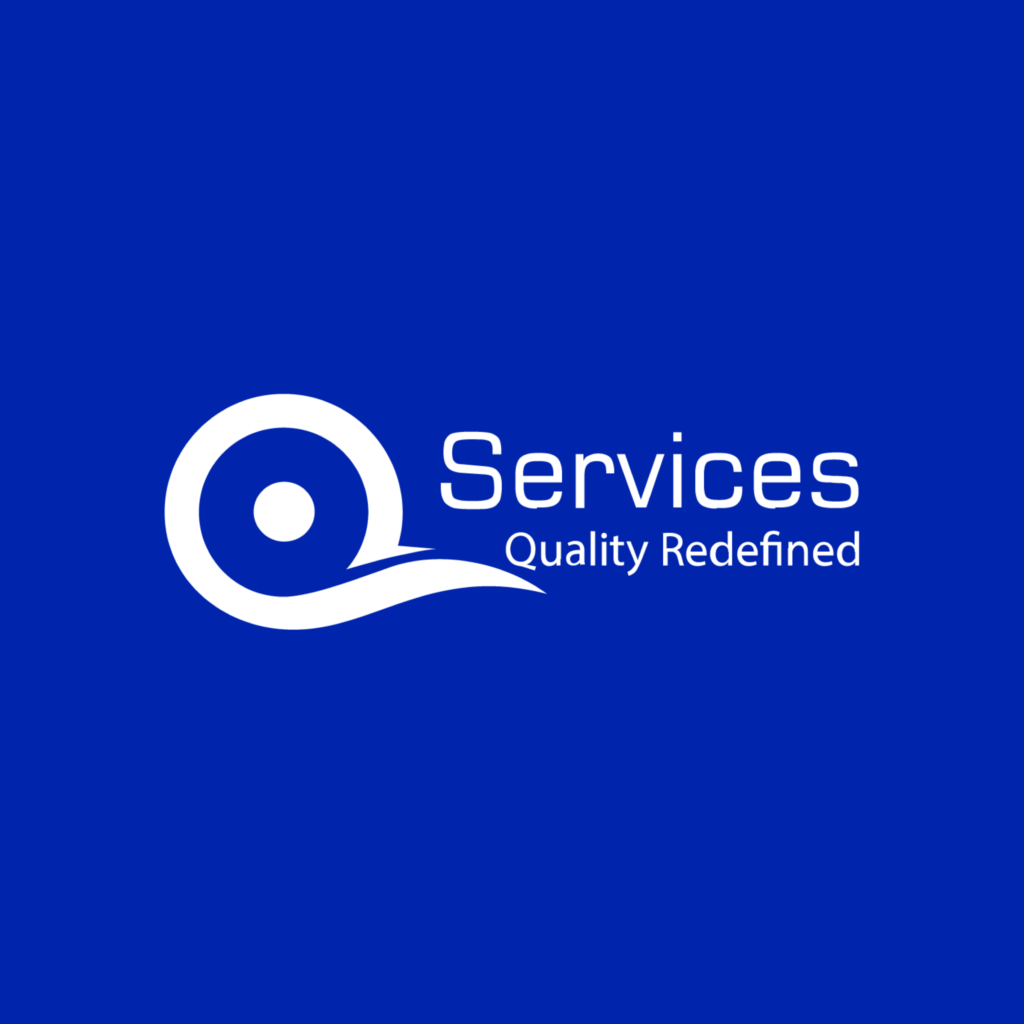
Our Articles are a precise collection of research and work done throughout our projects as well as our expert Foresight for the upcoming Changes in the IT Industry. We are a premier software and mobile application development firm, catering specifically to small and medium-sized businesses (SMBs). As a Microsoft Certified company, we offer a suite of services encompassing Software and Mobile Application Development, Microsoft Azure, Dynamics 365 CRM, and Microsoft PowerAutomate. Our team, comprising 90 skilled professionals, is dedicated to driving digital and app innovation, ensuring our clients receive top-tier, tailor-made solutions that align with their unique business needs.
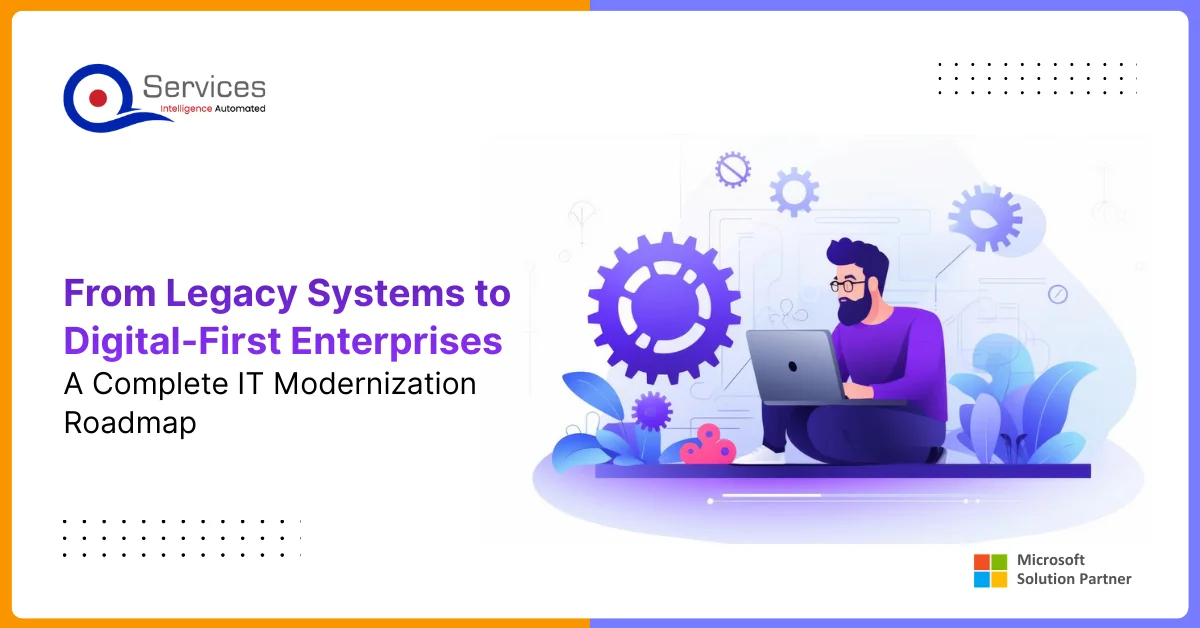
Most enterprises did not choose to be here. Core systems were built to be stable, not adaptable. Over time, layers of customization, integrations, and workarounds turned reliability into rigidity. Today, every new digital initiative feels harder than it should be.
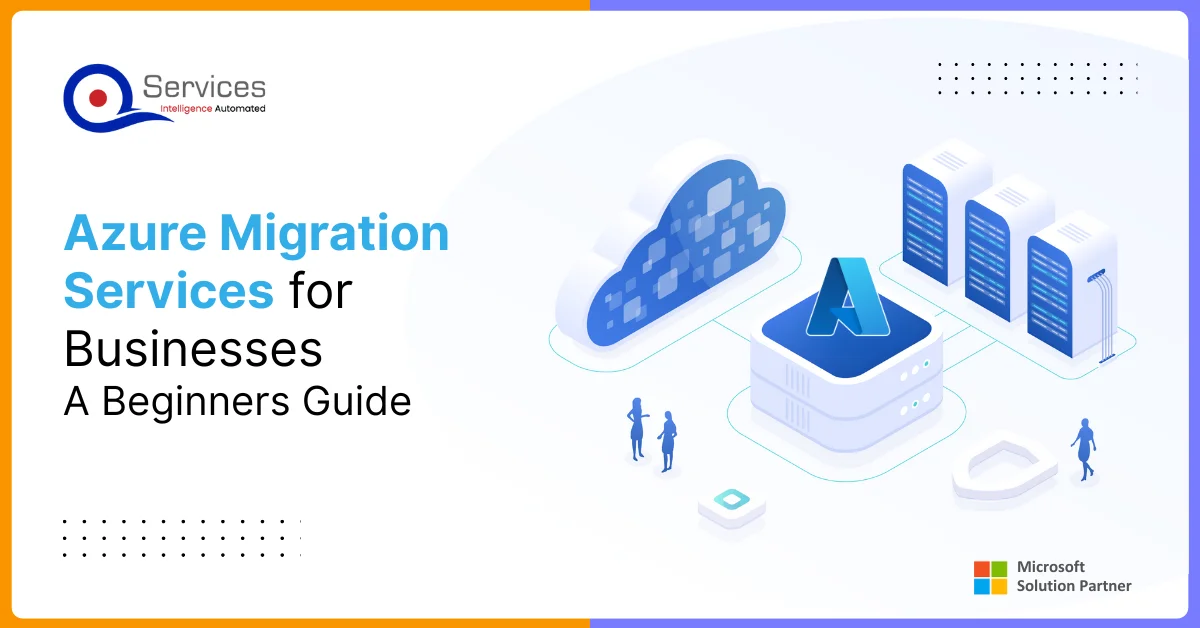
Recent industry data shows that most enterprises now treat Azure Migration Services as a core part of their IT modernization plans rather than a one time project. Businesses are actively prioritizing cloud migration to Azure to improve reliability, security, and long term cost control.
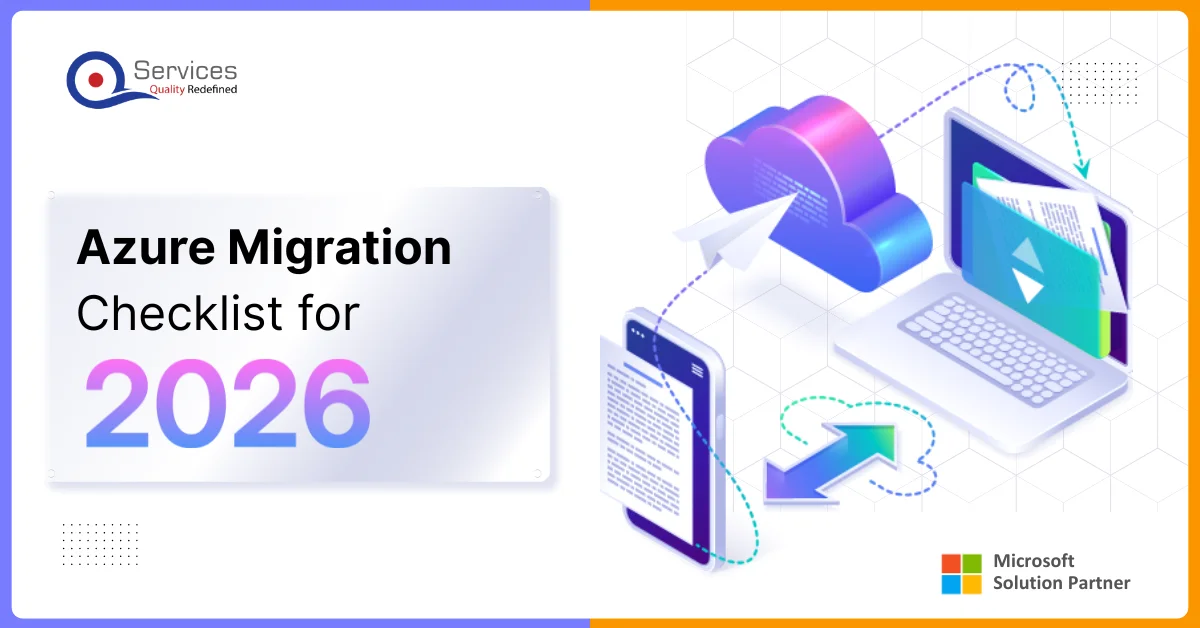
In 2026, moving workloads to Azure cloud migration is not just about transferring data. It’s about making the whole process smarter, more automatic, and easier to manage while keeping compliance and security tight.
Data science has several benefits for businesses such as better decision-making, improved operational efficiency, and better customer insights. By analyzing large datasets, businesses can identify trends and patterns that inform strategic decisions, optimize processes, and predict future outcomes, which leads to cost reduction and productivity increasement.
Azure Data Analytics helps in better decision-making. It provides real-time insights and comprehensive data analysis allowing businesses to process a huge amount of data quickly in an efficient way, turning raw data into actionable insights. Tools like Azure Synapse Analytics and Azure Machine Learning enable organizations to predict trends, identify opportunities, and make data-driven decisions.
To implement Azure Data Science effectively, start with a clear data strategy that matches your business goals. Use templates and standardized processes for consistency and efficiency. Take advantage of Azure’s tools like Azure Machine Learning and Azure Databricks for processing and deploying models. To keep everyone aligned for collaboration between data scientists and business stakeholders. Lastly, handle your projects entirely from data gathering to deployment and monitoring.
Azure Data Science ensures data security and compliance by using robust encryption, strict access controls, and adhering to industry standards like HIPAA and GDPR. Regular audits and compliance certifications help businesses to meet their legal requirements, keeping the data safe and compliant.
When using Azure Data Science tools, businesses usually face three common challenges: data quality issues, integration complexities, and scalability concerns.
To address these, focus on solid data cleaning, use Azure Data Factory for easy integration, and tap into Azure’s scalable infrastructure and tools like Azure Databricks. These are the steps when followed, will surely help your data science projects run smoothly and effectively.
Azure Data Science and Azure Data Analytics serve different purposes. Azure Data Science focuses on building and deploying machine learning models, involving complex data processing and predictive analytics. It’s about creating new insights and predictions from data. Azure Data Analytics, on the other hand, is about analyzing existing data to generate actionable insights and reports helping businesses to understand past performance and make insightful decisions based on historical data.
Integrating Azure Data Science with your current business systems can really enhance your operations. Here’s a quick rundown on how to do it:
By following these steps, you’ll add advanced insights and predictive capabilities to your systems without needing a full overhaul.
Azure Data Science benefits industries like retail (personalized shopping), healthcare (predictive analytics), finance (fraud detection), manufacturing (predictive maintenance), and marketing (targeted campaigns). These sectors see improved efficiency, decision-making, and customer satisfaction.
For measuring the ROI of your Azure Data Science projects, just compare the merits like cost savings and extra revenue with the total costs, which include technology and staff expenses. It helps you to understand the financial impact and value of your data science efforts.
To keep your data quality high in Azure Data Science projects, start with solid data cleaning and validation processes. Use tools like Azure Data Factory for integrating data and Azure Synapse for validating large datasets.
Time-to-time monitoring and updating help to maintain accuracy and consistency. Plus, involving domain experts can really help tackle any data quality issues that arises.

Founder and CEO

Chief Sales Officer
